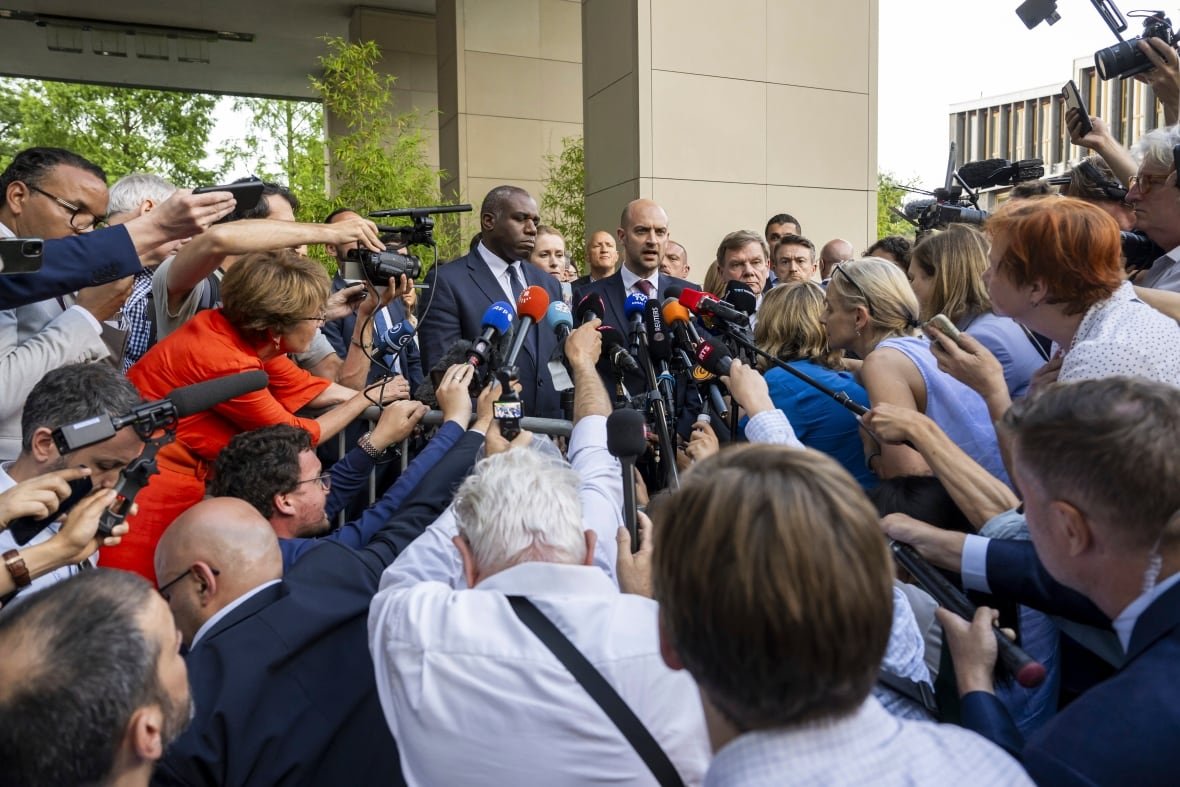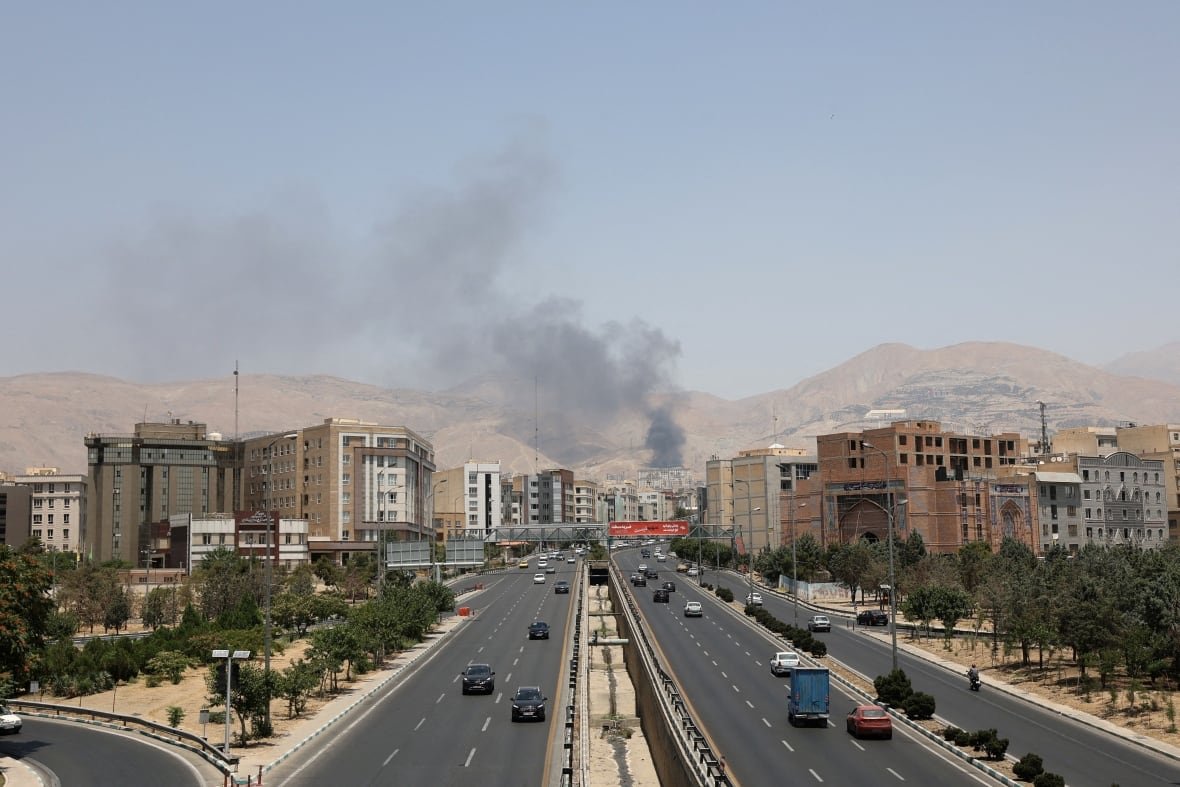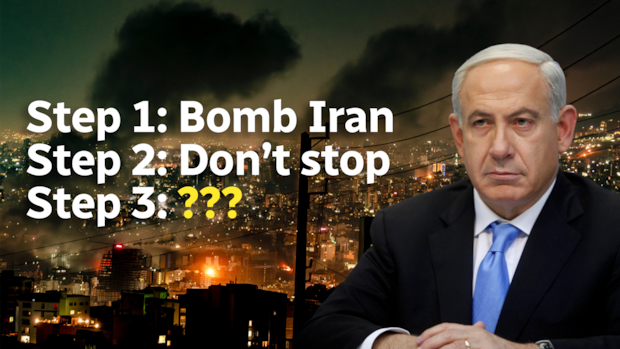A meeting Friday between Iran’s foreign minister and top European diplomats yielded hopes of further talks, but no indication of any immediate concrete breakthrough a week after the crisis centred on the Iranian nuclear program erupted into war between Israel and Tehran.
Foreign ministers from Britain, France and Germany, as well as the European Union’s foreign policy chief, emerged from talks at a Geneva hotel about three and a half hours after Iran’s Foreign Affairs Minister Abbas Araghchi arrived for the meeting.
It was the first face-to-face meeting between Western and Iranian officials since the start of the most recent conflict.
In a joint written statement issued after the talks ended, the three European nations and the EU said that they “discussed avenues towards a negotiated solution to Iran’s nuclear program.” They reiterated their concerns about the “expansion” of the nuclear program, adding that it has “no credible civilian purpose.”
“The good result today is that we leave the room with the impression that the Iranian side is fundamentally ready to continue talking about all important issues,” German Foreign Minister Johann Wadephul said, adding both sides had held “very serious talks.”
A week after Israel’s initial strikes on nuclear and military targets across Iran, many are asking: What comes next? As deadly attacks and counterattacks between the two countries continue with no end yet in sight, Andrew Chang explores what Israel’s endgame might be in its war with Iran and why its ambitions could go well beyond preventing Iran from developing a nuclear bomb.
(Images provided by Getty Images, The Canadian Press and Reuters)
British Foreign Secretary David Lammy said: “We are keen to continue ongoing discussions and negotiations with Iran, and we urge Iran to continue their talks with the United States.” He added that “we were clear: Iran cannot have a nuclear weapon.”
In a separate statement, Lammy stressed that the aim of Europe and the U.S. was that Iran should stop all uranium enrichment. He said that “there can be discussions about the energy needs of Iran” but added that “zero enrichment is the starting point.”
Lammy told British media outlets that there is “a window of within two weeks where we can see a diplomatic solution,” and urged Iran “to take that off ramp.”

“Military operations can slow Iran’s nuclear program but in no way can they eliminate it, said French Foreign Minister Jean-Noël Barrot. “We know well — after having seen what happened in Afghanistan, in Iraq, in Libya — how illusory and dangerous it is to want to impose regime change from outside.”
Barrot also said that European nations “invited the Iranian minister to envisage negotiations with all parties including the United States, and without waiting for the end of the strikes.”
Iran’s Araghchi also addressed reporters outside the meeting venue after the talks ended. He expressed support for “a continuation of discussions with the E3 and the EU and expressed his readiness to meet again in the near future.”
He also denounced Israel’s attacks against nuclear facilities in Iran and expressed “grave concern” on what he called “non-condemnation” by European nations.

U.S. considering how to proceed
Lammy travelled to Geneva after meeting in Washington with U.S. Secretary of State Marco Rubio and President Donald Trump’s Mideast envoy, Steve Witkoff.
Trump has been weighing whether to attack Iran by striking its well-defended Fordo uranium enrichment facility, which is buried under a mountain and widely considered to be out of reach of all but America’s “bunker-buster” bombs.
He said Wednesday that he’ll decide within two weeks whether the U.S. military will get directly involved in the war given the “substantial chance” for renewed negotiations over Tehran’s nuclear program.
The White House says U.S. President Donald Trump will decide whether to authorize U.S. strikes on Iran within the next two weeks, and that he believes there is still ‘a substantial chance of negotiations’ on finding a nuclear deal.
Israel says it launched its airstrike campaign to stop Iran from getting closer to being able to build a nuclear weapon. Iran and the United States had been negotiating over the possibility of a new diplomatic deal over Tehran’s program, though Trump has said Israel’s campaign came after a 60-day window he set for the talks.
France’s Barrot said the European nations “wanted to open a discussion with the Iranian foreign minister because we believe that there is no definitive solution by military means to the Iranian nuclear problem — military operations may delay it, but they can’t eliminate it.”
- Are you a Canadian currently in Iran or Israel? We want to hear from you. Email ask@cbc.ca.
Iran’s supreme leader rejected U.S. calls for surrender Wednesday and warned that any military involvement by the Americans would cause “irreparable damage to them.”
Before Friday’s talks, Araghchi said in an interview aired by Iranian state television that “in the current situation, as the Zionist regime’s attacks continue, we are not seeking negotiations with anyone.”

He said that Tehran rejected negotiations with the Americans, noting: “We have nothing to discuss with the United States, which is a partner in these crimes.”
“As for others, if they seek dialogue, not negotiations, which don’t make sense right now, we have no problem with that,” he said. He noted that Friday’s discussion would focus “solely on the nuclear issue and regional matters” and Iran won’t hold talks on its missiles with anyone.


